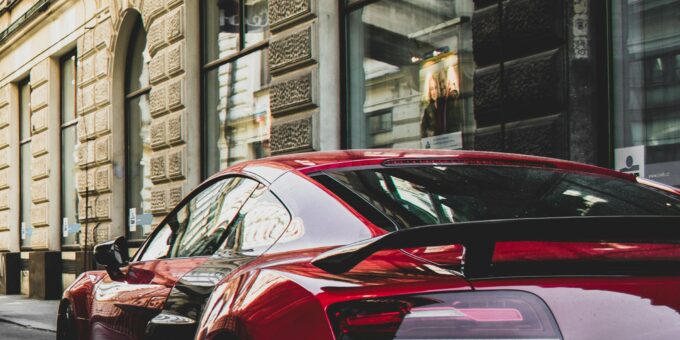
Luxury cars have always been more than a means of transportation. They are symbols of refinement, success, and exclusivity. From the earliest handcrafted Rolls-Royce models to the sleek and futuristic Tesla Roadster, luxury vehicles have consistently set benchmarks in design, comfort, and innovation. But in today’s fast-paced, hyper-connected world, luxury is no longer defined only by leather interiors or handcrafted details. Instead, the future of luxury cars lies in artificial intelligence (AI).
AI is reshaping the very essence of premium vehicles. No longer just machines, cars are becoming intelligent companions capable of understanding, predicting, and even conversing with their drivers. This shift marks a significant departure from traditional luxury, where horsepower and material quality dominated. Instead, intelligence, adaptability, and personalization are the new pillars of prestige.
Why? Because modern consumers demand more than just status symbols. They want vehicles that integrate seamlessly into their lifestyles, enhance safety, and reflect their individuality. AI makes this possible by learning driver preferences, predicting road hazards, and ensuring a smoother, more enjoyable journey.
The road ahead is clear: AI is not just an enhancement but the foundation of the next luxury car revolution.
The Evolution of Luxury Cars
To understand where luxury cars are headed, it’s essential to appreciate how far they’ve come. The early days of premium vehicles were defined by craftsmanship and engineering brilliance. Automakers like Bentley, Mercedes-Benz, and Rolls-Royce built reputations on handcrafted interiors, advanced mechanical engineering, and a focus on exclusivity.
But over the decades, technological innovation has gradually redefined luxury. The introduction of features like automatic transmission, air conditioning, and GPS navigation once represented the pinnacle of sophistication. Fast forward to today, and those features are considered standard, even in mid-range cars.
This shift has forced luxury car brands to continuously raise the bar. Now, exclusivity isn’t just about polished wood panels or roaring V12 engines—it’s about intelligence. Cars that anticipate your needs, recognize your voice, and even monitor your health are setting the standard for modern luxury.
The evolution of luxury cars mirrors the evolution of consumer expectations. Today’s buyers are tech-savvy, environmentally conscious, and deeply invested in personalized experiences. For them, luxury is not just about what the car looks like—it’s about what the car can do for them. AI sits at the heart of this transformation, bridging the gap between tradition and futuristic innovation.
Artificial Intelligence as the Core Driver
In the luxury car industry, AI has shifted from being an optional enhancement to becoming the core driver of value and exclusivity. Traditional metrics like horsepower, torque, and top speed are still important, but they are no longer the primary differentiators. Instead, the intelligence of a vehicle—how it adapts, learns, and assists—is emerging as the ultimate symbol of luxury.
For example, Mercedes-Benz’s MBUX (Mercedes-Benz User Experience) showcases how AI can elevate the driving experience. The system learns driver preferences over time, suggesting routes, adjusting climate control, and even recommending music based on past behavior. Similarly, Tesla’s Autopilot leverages AI not only for autonomous driving but also for predictive decision-making that enhances safety.
Luxury car buyers today want exclusivity that extends beyond the physical. They want vehicles that feel uniquely theirs, shaped by AI algorithms that constantly evolve with their needs. Imagine stepping into your car, and it instantly adjusts the seat, climate, lighting, and entertainment to your preferences—without a single touch or command. That is the future of AI-driven luxury.
What makes this shift so profound is that it redefines status symbols. Owning a car that can think, predict, and adapt isn’t just convenient—it reflects a lifestyle where technology and exclusivity are seamlessly intertwined. For luxury brands, AI is not just an innovation; it’s the new DNA of premium automobiles.
You Can Also Read : How to Experience Autonomous Driving in Future Luxury Vehicles
Personalization with AI
One of the most exciting contributions of AI in luxury cars is the ability to personalize the driving experience at a granular level. Unlike traditional customization, which focuses on aesthetics like paint color or upholstery, AI-driven personalization is dynamic, evolving with the driver over time.
Luxury carmakers are increasingly using AI to tailor every aspect of the driving experience. Adaptive infotainment systems, for instance, can suggest playlists based on mood, time of day, or even stress levels detected from biometric sensors. Driving modes can also adapt in real-time—switching between sport, comfort, or eco-driving depending on how aggressively or smoothly the driver handles the vehicle.
This level of personalization transforms cars into living entities that grow alongside their owners. For example, BMW’s Intelligent Personal Assistant learns commands in natural language, meaning drivers don’t have to memorize phrases—they can simply talk to their car as they would a friend. Similarly, AI-powered climate control systems can adjust temperature based on passenger preferences and external conditions.
In the realm of luxury, such personalization represents the ultimate indulgence: a car that knows you better than you know yourself. It’s not just about comfort—it’s about creating a deep emotional connection between driver and machine, which is at the very core of what makes luxury unique.